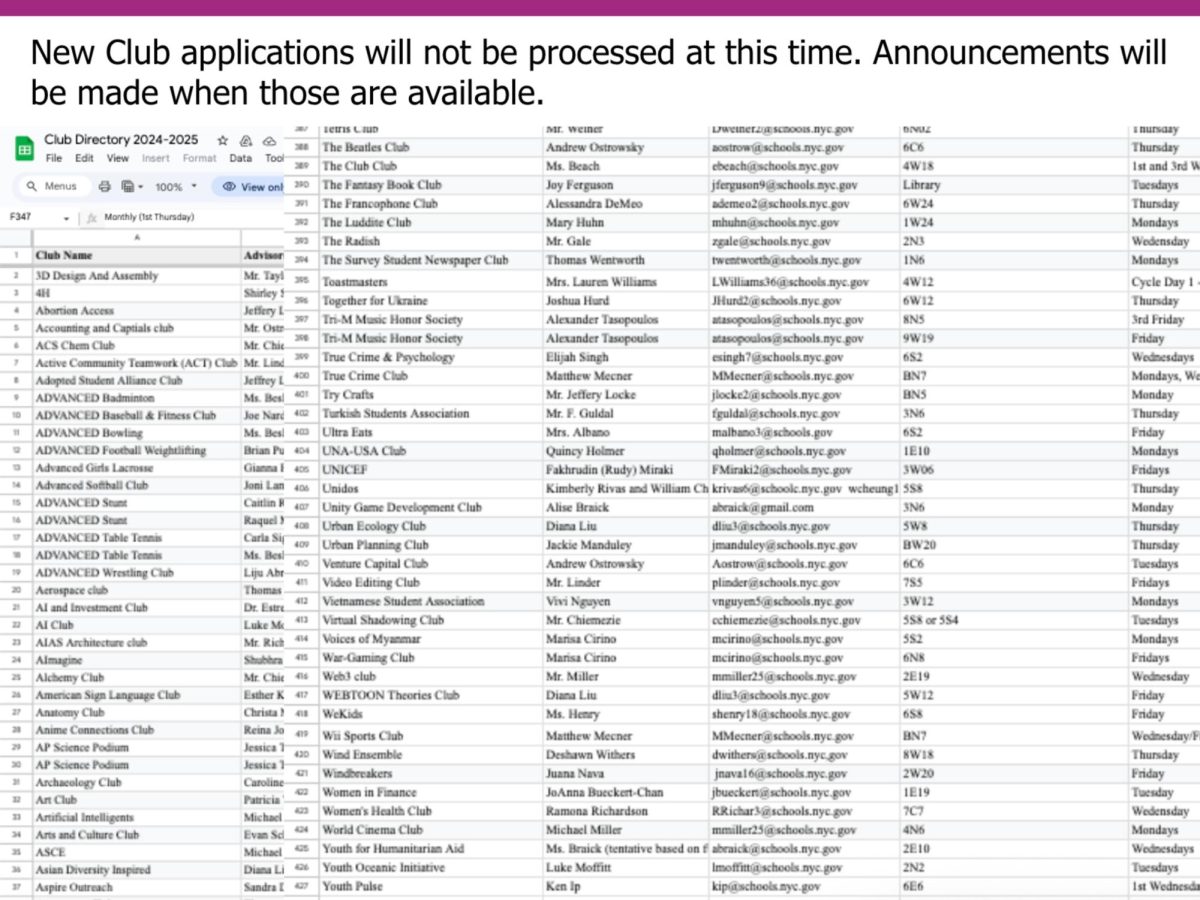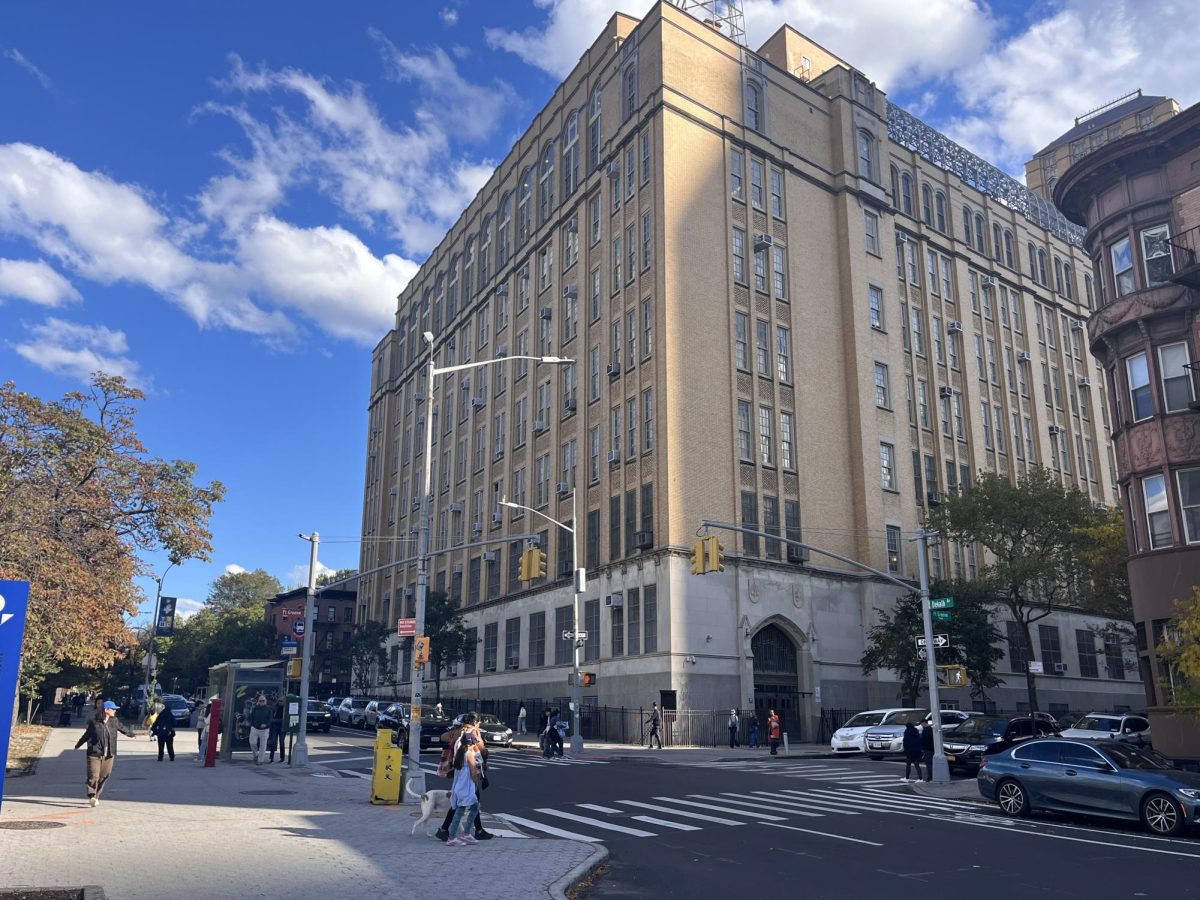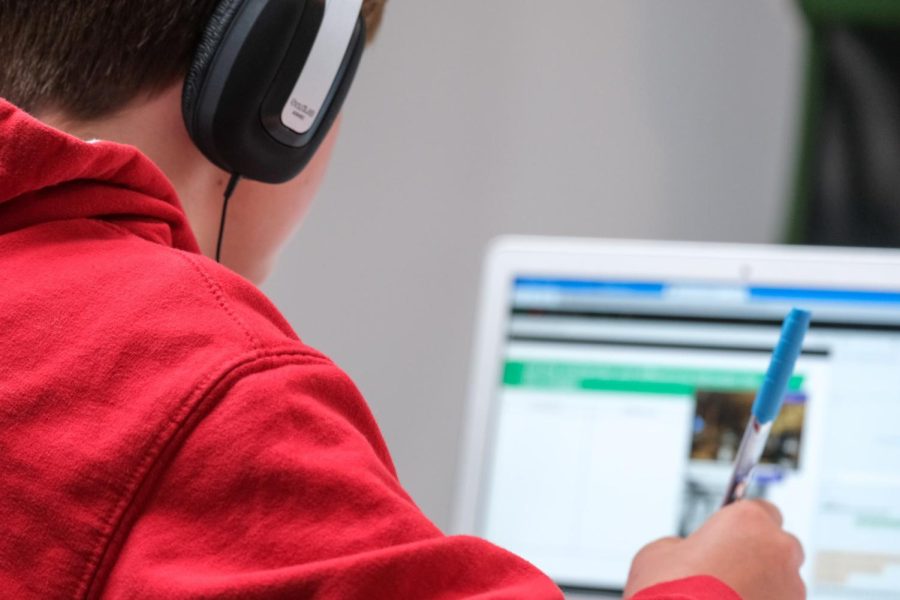Health Implications of Remote Learning
March 1, 2021
Red and foggy eyes, neck and back pain, fatigue and the inability to concentrate – these symptoms are all noted as direct side effects of remote learning. Moreover, heavy screen usage, for up to 8 hours per day, takes a toll on students’ physical and emotional health.
Research conducted by David Rogerson, a nutritionist at Sheffield Hallam University in the United Kingdom, suggests that prolonged sitting increases the chances of acquiring diabetes, poor digestion, and cardiovascular and spinal issues- all commonly seen in the elderly. These may take the form of a hunched or hyperextended neck or strained joints. As a result of remote learning, muscle loss may soon become prevalent in younger generations as well. Additionally, prolonged screen time leads to eyestrain, poor sleep cycles, headaches, and extreme fatigue. The combination of prolonged sitting and screen time creates dangerous consequences to students’ health.
Physical health is only one of the risks associated with remote learning, as mental health is also an increasing danger. Research performed by Forbes suggests that social disconnection and physical isolation contributes to anxiety and depression. The added stress of school work, possible family matters, and other pre-existing affairs in students’ personal lives can lead to poor mental health as remote learning continues. A recent study based on high school students in the United States shows that the number of students that gave a rating of 3 or below, when asked to rate their mental health on a scale of 1-10, has nearly tripled since the start of the pandemic.
Fortunately, there are many ways in which students can maintain good health while learning remotely. First of all, making sure to eat nutritiously- having balanced meals and staying hydrated during the day- is essential for all growing adolescents. Additionally, attempting to venture outside simply for 20 minutes a day can improve one’s wellbeing; taking a short walk can help substitute for the lack of physical activity. Lastly, starting a new hobby and meeting new people through virtual events can also help make remote learning more entertaining. Students can also try joining one of the many clubs that Brooklyn Tech has to offer to boost social interaction.
When asked if she felt supported by school staff while learning remotely, Elise Fazli ‘21 responded, “It would be nice to have someone at school willing to listen to student’s concerns if they need it. Personally, I could use the extra help, especially with college deadlines approaching.” Additionally, Violet Willougby ‘22 stated “I think it might be helpful for the school to send out some resources, so if people are struggling they can find out more info.”
A recent poll conducted by The Survey provided 152 Tech students a list of potential physical or mental effects they might be experiencing from remote learning. According to 77% of participants, the most common symptom was a lack of motivation. The second most common answer indicated that 63% of participants had an inability to focus. Additionally, around 45% of participants reported that they are experiencing anxiety and physical pains such as irritated eyes, back pain, and headaches.
In regards to students’ questions or concerns, one participant stated, “There is no break. It feels like we go from school at 2 to figuring out how soon to start hours of homework so that it all gets done on time.” Another participant voiced, “I think many teachers believe that just because we are not physically in school, that we have more time. That is not true. We are trying to balance school work, our social lives, and making sure we are healthy, physically and mentally.”
When asked which activities are improving their health, 84% of participants chose staying connected with family and friends. 49% of participants chose attending a BTHS club. Around 32% of participants reported attending SEL days, and 11% reached out to their guidance counselors.
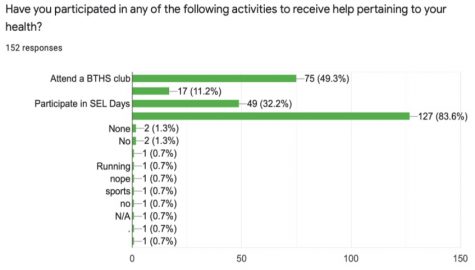
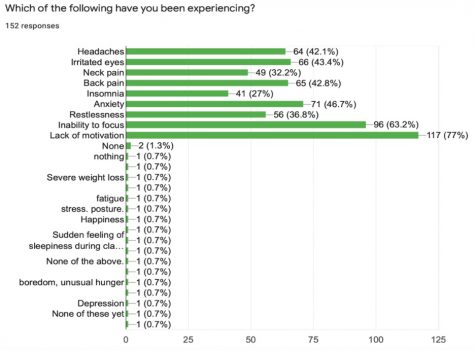
Regardless of the challenges of remote learning, it is important that we all do our best to take care of ourselves, and others in the school community during this difficult time.


